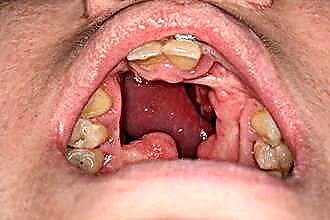 Nasal drops from sinusitis with antibiotics have fewer side reactions, therefore they have an advantage over tablet forms.
Nasal drops from sinusitis with antibiotics have fewer side reactions, therefore they have an advantage over tablet forms.
Why is it necessary to use topical antiseptics? Consider the mechanism of sinusitis development. In case of improper treatment of the common cold, the inflammatory process spreads to the mucous membrane of the paranasal sinuses, as a result of which hypersecretion begins.
The swollen mucous membrane of the nasal passages prevents the normal outflow of mucus from the cavities, and also disrupts ventilation in them.
All this leads to the activation of conditionally pathogenic flora, intensive reproduction of microbes. The accumulation of mucus is a good breeding ground for microorganisms that support the inflammation in the paranasal sinuses.
Treatment of the disease is aimed at:
- normalization of the outflow of mucus from the maxillary sinuses;
- reducing inflammation;
- decrease in swelling of the mucous membrane;
- fight against pathogenic microbes;
- restoration of nasal breathing.
Antibiotics can be prescribed for systemic and local action. We list the most commonly prescribed nasal drops for sinusitis with an antibiotic. Drug names:
- Isofra;
- Polydex;
- Bioparox.
Antiseptic drugs can also be used, which also inhibit the vital activity of microbes. Outstanding representatives are Miramistin and Protargol.
Isofra
Drops from sinusitis with an antibiotic are used for local treatment in order to eliminate infectious pathogens. The active substance is represented by framycetin, which belongs to the group of aminoglycosides. The antibacterial agent accumulates in the tissues of the paranasal sinuses, thereby inhibiting microbial activity.
Framycetin resistance is practically not observed. It has a detrimental effect on most microorganisms that cause diseases of the respiratory tract. A minimum amount of the active substance is absorbed into the systemic circulation, so no systemic effect is observed.
Indications, contraindications
With the help of Isofra, it is possible to treat not only sinusitis, but also bacterial rhinopharyngitis. For prophylactic purposes, it is prescribed in the postoperative period to prevent infectious complications.
Among the contraindications, it is worth highlighting the intolerance of framycetin and other representatives of the group of aminoglycoside antibiotics. Also, the drug is not prescribed for infants. When using the drug during pregnancy, the risk of intrauterine damage to the ears, the vestibular apparatus of the fetus increases.
If treatment is carried out during lactation, it is required to stop breastfeeding.
Mode of application
The medicine is used intranasally. The drug should be sprayed from a vertically located bottle. Adults are advised to take one dose up to six times a day. As for children, the frequency of use should not exceed three times a day.
The duration of the therapeutic course is 10 days. Isofra in most cases is well tolerated, only occasionally local allergic reactions are possible.
If, 4 days after the start of treatment with Isofra, there is no positive trend, it is necessary to change the therapeutic tactics.
Polydexa
 Polydexa - antibacterial nasal drops for sinusitis, which contain an antiseptic, anti-inflammatory, vasoconstrictor and hormonal component.
Polydexa - antibacterial nasal drops for sinusitis, which contain an antiseptic, anti-inflammatory, vasoconstrictor and hormonal component.
Thanks to polymyxin B, neomycin, the drug has a powerful antimicrobial effect. Dexamethasone has anti-inflammatory, antihistamine, decongestant effect.
Phenylephrine reduces mucosal edema due to spasm of local blood vessels. This facilitates the outflow of mucus from the paranasal sinuses.
The maximum antimicrobial effect is observed if the cause of sinusitis is intestinal, Haemophilus influenzae or Staphylococcus aureus. The drug is ineffective for streptococcal, pneumococcal and anaerobic infections.
Indications, contraindications
The medicine can be prescribed to treat sinusitis, as well as otitis media of bacterial origin. It is especially important to use an antibacterial agent when purulent discharge appears. Restrictions on the use of Polydexa concern:
- individual intolerance;
- severe renal insufficiency;
- glaucoma;
- active viral diseases;
- age up to 2.5 years.
Polidex should be used with caution in case of cardiac pain, hyperfunction of the thyroid gland, arterial hypertension.
If it is necessary to use the drug during pregnancy, prior consultation with a doctor is required. The effect of the drug on the embryo has not been studied, so you should be extremely careful.
If the treatment is carried out during the lactation period, you need to stop feeding. Note that the spray is not recommended for athletes during competition due to the risk of a positive doping test.
Mode of application
For adults, it is recommended one dose up to five times a day, in childhood - no more than three times.
With an increase in the frequency of use of Polydexa, the risk of developing microbial resistance increases, which significantly reduces the effectiveness of therapy.
Among the side reactions, irritation of the nasal mucosa should be distinguished, which is manifested by sneezing and burning sensations. Rarely, a skin rash is observed.
Bioparox
Treatment with Bioparox is carried out thanks to its active ingredient - fusafungin, which belongs to the antibacterial group. It is able to inhibit the activity of most microbes, as well as reduce the severity of the inflammatory process. Pathogenic microorganisms do not die under the action of the drug, but they lose the possibility of reproduction.
Indications, contraindications
Antibiotics in nasal form are prescribed for the bacterial process in the nasopharynx and paranasal cavities. For prophylactic purposes, the drug is used in the postoperative period, when it is necessary to prevent the development of infectious complications.
Restrictions apply to:
- individual intolerance to the components of Bioparox;
- children under 2.5 years of age. Contraindications are due to the high risk of laryngospasm;
- increased allergic predisposition.
If the drug gets into the eyes, rinse them with plenty of water. Treatment with Bioparox during the lactation period, as well as during pregnancy, is carried out only under medical supervision.
Mode of application
First, a nozzle should be put on the bottle. It should be upright. You need to insert the nozzle into one nasal passage, and close the other with your hand.
After spraying, the nozzle should be disinfected to prevent it from becoming a source of infection. For the cleaning procedure, you can use ethyl alcohol and a cotton swab.
It is recommended to inject two doses up to four times a day into each nasal passage. Usually, the medication is well tolerated, only occasionally you can notice:
- dryness of the nasopharyngeal mucosa, sneezing;
- cough, bronchospasm, shortness of breath, laryngospasm;
- nausea;
- unpleasant taste in the mouth after drug administration;
- hyperemia of the eyes;
- lacrimation;
- skin rashes, itching, hives.
Miramistin
 Antiseptic drugs include Miramistin. It has a wide antimicrobial spectrum, due to which it is often used in gynecology, surgical practice, and otolaryngology.
Antiseptic drugs include Miramistin. It has a wide antimicrobial spectrum, due to which it is often used in gynecology, surgical practice, and otolaryngology.
The medicine can be dripped to infants, pregnant women, as it is absolutely safe and has no contraindications.
The active substance, miramistin, has a pronounced antiseptic, anti-inflammatory effect, and is also capable of activating regeneration processes.
Indications, contraindications
The medication is prescribed to fight bacteria and fungal pathogens. It is odorless and does not cause discomfort when nasal passages are buried, which is especially important in pediatrics. In otolaryngology, aerosol and drops are used.
Miramistin is used for acute sinusitis or at the stage of chronic inflammation. In addition, the drug is effective in the complicated course of sinusitis, when infection and inflammation spreads to the mucous membrane of the throat and ear cavity.
Among the contraindications, it is worth highlighting only the individual intolerance of the active substance.
Mode of application
Miramistin can be prescribed for rinsing the nasal cavities, as well as for drip administration of the drug. It is recommended to drip a few drops into each nasal passage. The procedure should be repeated up to three times per day.
If the treatment is carried out to infants, you can dilute Miramistin with boiled water (1: 1).
Children from three years old are allowed to take the drug in the form of an aerosol. Pregnant women should be instilled three drops three times. In exceptional cases, you may notice a slight dryness, swelling and itching in the nasopharynx.
Protargol
Protargol has antimicrobial properties, so it can be used for sinusitis to fight infection. Thanks to the active components, which are represented by silver ions, the medicine has a powerful anti-inflammatory effect.
The drug is able to suppress the reproduction of pathogenic microorganisms. Its advantages include:
- lack of addiction;
- preservation of normal microflora of the nasopharynx.
Indications, contraindications
The medicine is widely used not only in otolaryngology, but in ophthalmology, gynecology, urology.
Protargol is not prescribed for people with frequent allergies, as it contains protein fractions. In addition, the medication is not recommended during pregnancy, during the lactation period.
Most often, a 1-2% drug is used, however, in consultation with the doctor, a drug with a higher concentration can be used.
Mode of application
Three drops should be instilled into each nasal passage three times a day. From side reactions it is necessary to highlight local manifestations, for example, itching sensations, redness of the eyes, skin, dryness in the nasopharynx, as well as headaches.
We have reviewed the most effective antibiotic nasal drops for sinusitis. They can be chosen on their own or used on the recommendation of a doctor. We focus on the fact that home treatment does not always lead to the desired result, therefore, in the absence of positive dynamics within three days, you should consult with a specialist.



